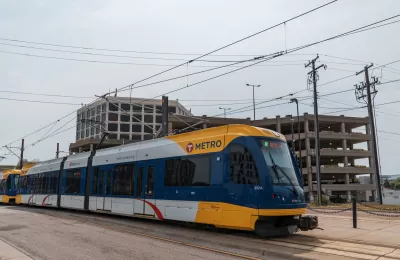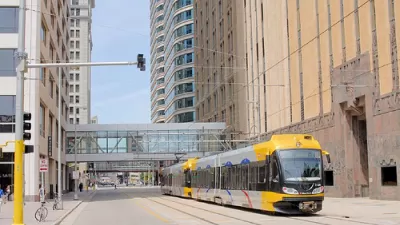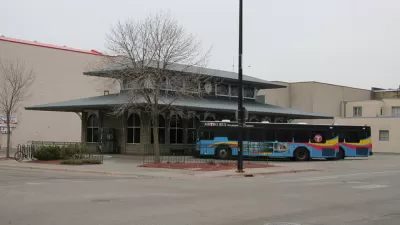In 2017, Metro Transit in the Twin Cities raised fares but also started a program for low-income riders to help ease the burden of travel costs.

The Transit Assistance Program started in the Twin Cities about two years ago at the same time that fares were raised by 25 cents. The TAP program lets low-income riders use the bus and rail system for $1 per trip with unlimited transfers for up to 2 1/2 hours.
"[It] replaced a bonus program that offered 10 percent discounts to any customer who bought rides in bulk using a stored-value card. In other words, rides got cheaper for low-income riders, but discounts for general customers went away," reports Frederick Melo.
Melo says that about 20,000 people are enrolled in the program and TAP participants have made 1.7 million trips, but more people are eligible to take advantage of the discounted fare. The program’s coordinator notes that the lower fare gives riders more travel flexibility by allowing them to make more trips.
Metro is partnering with 65 community organizations distributing the cards to clients. "The TAP program, which carries a $3 million cost over the two-year stretch, is paid for in large part by discontinuing the stored-value bonus for Go-To cards," notes Melo.
FULL STORY: Metro Transit’s Transit Assistance Program celebrates two years, nearly 2 million rides

Planetizen Federal Action Tracker
A weekly monitor of how Trump’s orders and actions are impacting planners and planning in America.

Maui's Vacation Rental Debate Turns Ugly
Verbal attacks, misinformation campaigns and fistfights plague a high-stakes debate to convert thousands of vacation rentals into long-term housing.

San Francisco Suspends Traffic Calming Amidst Record Deaths
Citing “a challenging fiscal landscape,” the city will cease the program on the heels of 42 traffic deaths, including 24 pedestrians.

Amtrak Rolls Out New Orleans to Alabama “Mardi Gras” Train
The new service will operate morning and evening departures between Mobile and New Orleans.

The Subversive Car-Free Guide to Trump's Great American Road Trip
Car-free ways to access Chicagoland’s best tourist attractions.

San Antonio and Austin are Fusing Into one Massive Megaregion
The region spanning the two central Texas cities is growing fast, posing challenges for local infrastructure and water supplies.
Urban Design for Planners 1: Software Tools
This six-course series explores essential urban design concepts using open source software and equips planners with the tools they need to participate fully in the urban design process.
Planning for Universal Design
Learn the tools for implementing Universal Design in planning regulations.
Heyer Gruel & Associates PA
JM Goldson LLC
Custer County Colorado
City of Camden Redevelopment Agency
City of Astoria
Transportation Research & Education Center (TREC) at Portland State University
Jefferson Parish Government
Camden Redevelopment Agency
City of Claremont





























